Christ asks the rich young man to give up everything and to follow him. Sometimes we answer this call in seemingly minute ways. We pause our day to visit Christ in his sacred space. We depart from our busyness to enter the quiet of Christ’s gaze upon us.
“Jesus said to him, ‘If you wish to be perfect, go, sell what you have and give to the poor, and you will have treasure in heaven. Then come, follow me.’”
Perhaps we are struck with the realization that we are not the only ones in motion as we walk toward and kneel before the monstrance. The gold shines across the metal surface as the light enters from the window. The sharp rays emanating from the circular center reach out and draw in, like the give-and-take of a breath. The carefully crafted ornamentation beckons us up to the focal point and draws us into its own reverent embrace. The monstrance, in its every detail, demands our attention to its gift of total love. The monstrance lifts Christ up to us, face to face, so that we may confront the love that is creating us ever anew. We know that this truth is astounding, radical, awe-inspiring.
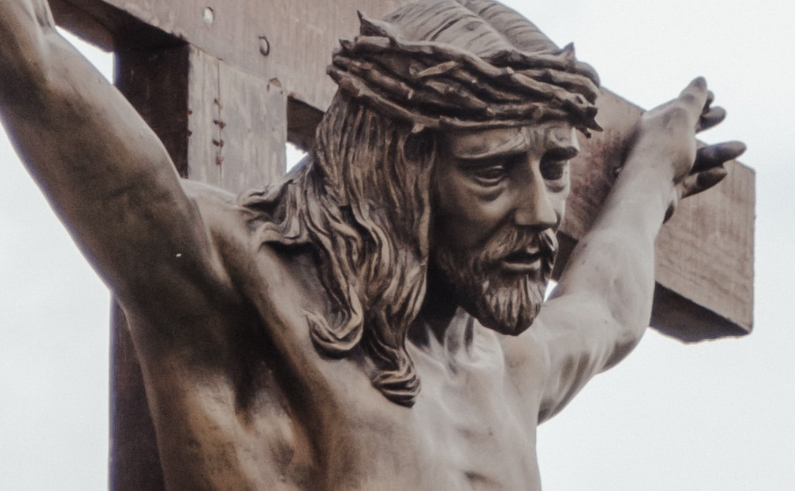
Christ’s Body
The most shocking part of it is this: inside the monstrance is flesh just like our own—what we live in every day. If he had given up everything, the rich young man would have discovered himself. In turning to Christ, this is where we find ourselves, too.
During the three-year long National Eucharistic Revival, the USCCB invites our parishes to more deeply consider the meaning of the Eucharist and to invite its mystery into our lives.
Is it ironic or fitting that this initiative overlaps with the years that have ushered in a new era in the development of artificial intelligence (AI)? Advancements in AI technology prompt us to consider how the impressive new capabilities of algorithms without flesh might compare with the independent intelligence and personal life to which we lay claim in our humanity.
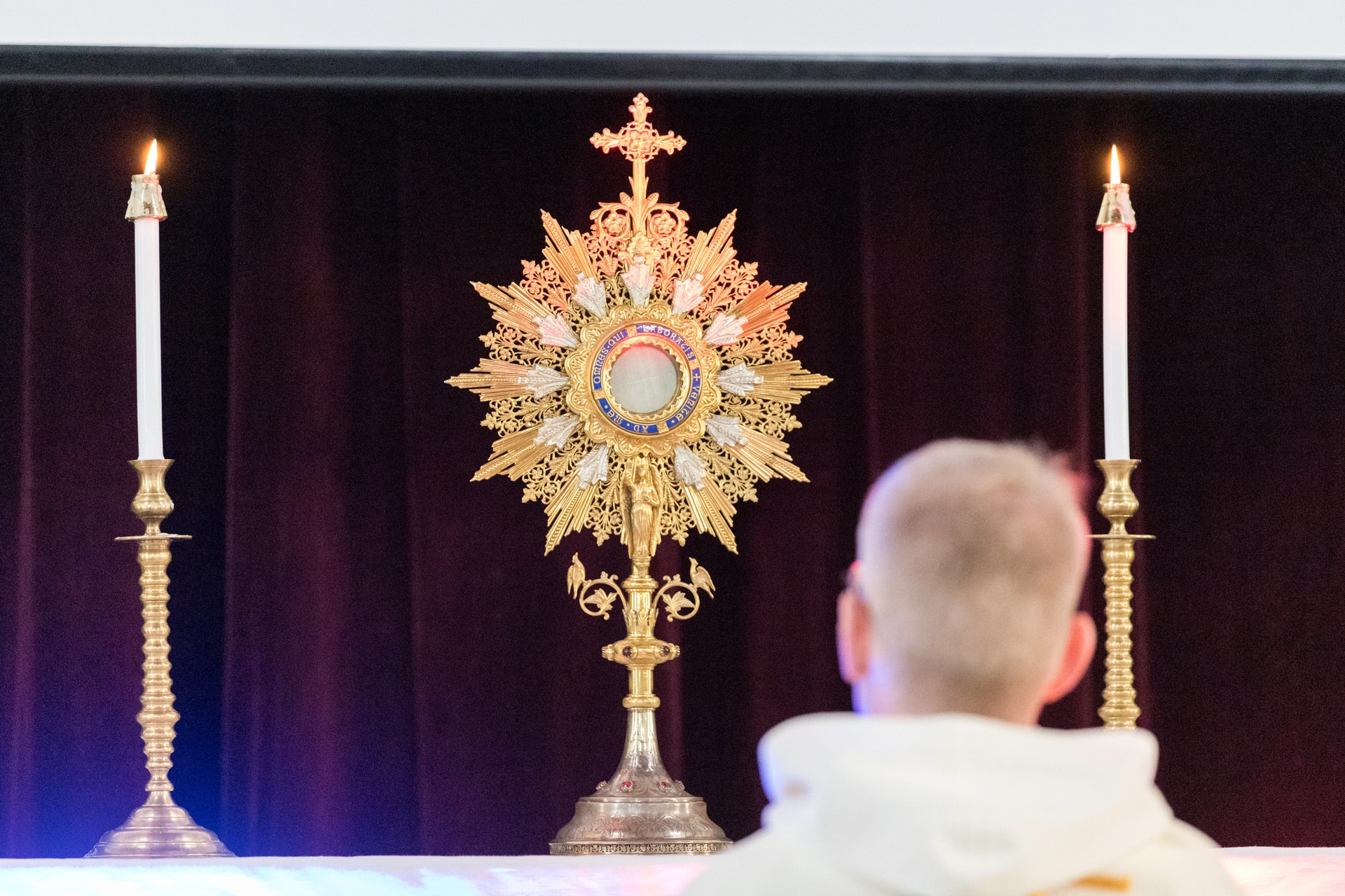
Artificial Intelligence (AI)
When we offer a task to artificial intelligence, it is one that other programs, or even persons, could execute. But the advantage of technology over humanity is efficiency. The expectations for artificial intelligence are that it responds to our desires immediately—or even anticipates these desires before we realize them. We input a question into ChatGPT and expect an automatic response. Marketing algorithms track our online interactions and then create personalized advertising schemas. We can utilize AI applications to create technical or artistic works which we could only previously produce with reliance upon inspiration fortuitously striking the human mind.
New applications of artificial intelligence pose the threat of replacing our prudential engagement with the world, perhaps even contributing to the degradation of our own skillsets. These ready answers and services make it increasingly difficult to give up everything when we can become so easily attached to the world—and AI-driven marketing and programming takes advantage of our inclinations and obsessions. We have already turned more than the first few pages of this new chapter in technological history. Yet, we uncover a new layer of an eternal question, namely what makes one human. When we behold the noise, hype, and popular discussions about the nature of artificial intelligence, what does it reveal about us?
What does artificial intelligence reveal about us?
There are two important features of the human person that I would like to highlight here (note: this is not an all-inclusive list). Though these are perennial themes of theological reflection, their sacredness should be all the more celebrated in light of the comparative limitations of artificial intelligence. Those characteristics are 1) humans can choose their own purposes, and 2) we are each irreplaceable.
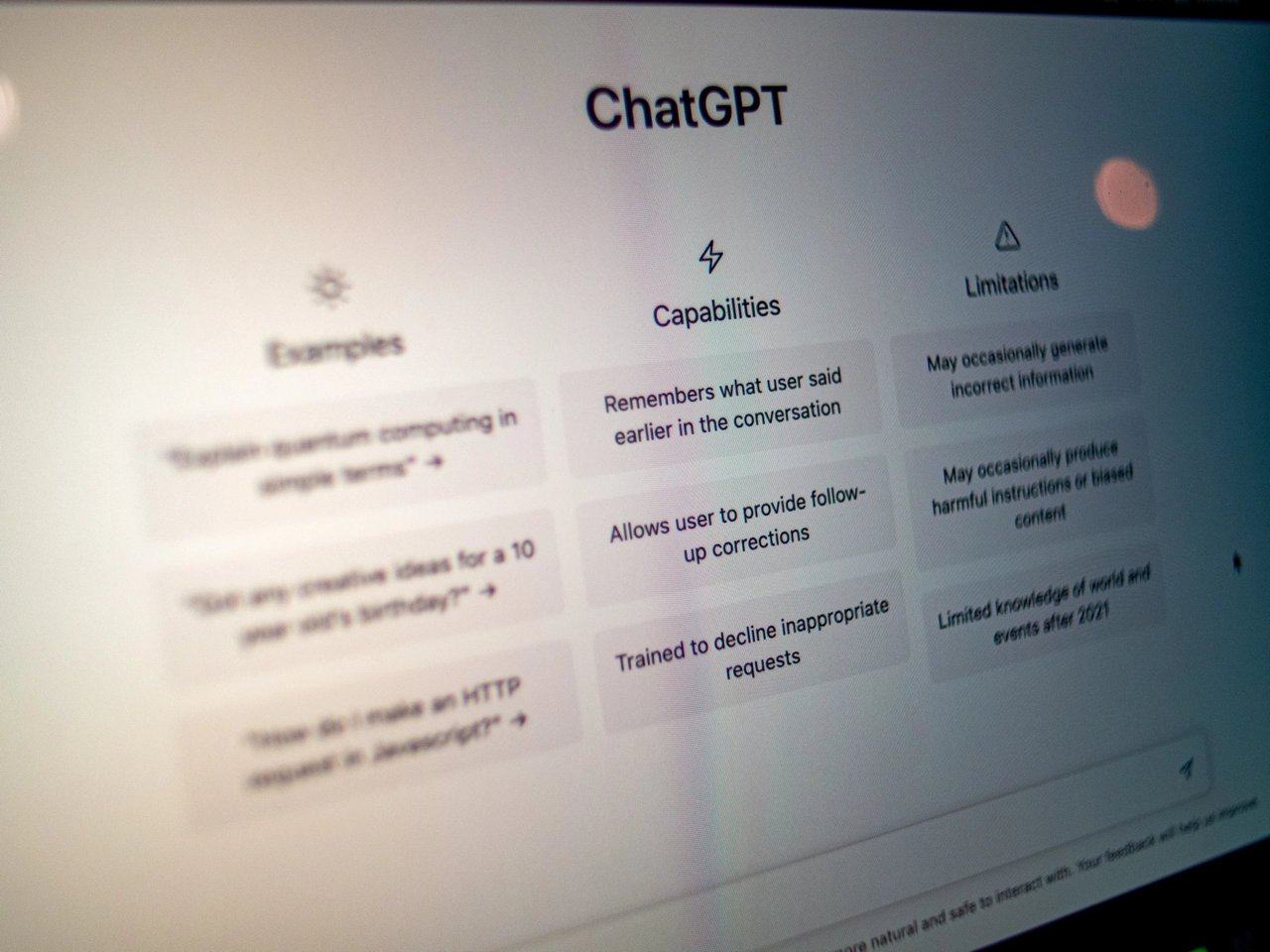
Choosing our purpose
In considering human choice, we have the invitation to respond or to not respond to that which calls upon us. To answer his calling and to offer his full self to Christ, the rich young man was asked to detach himself from what was holding him back. The human person “is the only creature on earth which God willed for itself, [and] cannot fully find himself except through a sincere gift of himself” (Gaudium et Spes §24). A gift given by a creature in return to a creator must be freely willed. To our requests, artificial intelligence can respond with a “Here it is.” When God asks someone to partake on a mission only meant for one, however, we each hope to respond like Isaiah: “Here I am.”
But neither the call nor our response has to be vocalized or typed or inputted. We can love the painful, joyful presence of the flesh of Christ without words, and we can recognize Him in us and ourselves in Him. We can refuse to take for granted the reality that we are embodied persons, and we can accept the Lord’s invitation to sanctification.
We Are Each Irreplaceable
Now, to consider the fact of our irreplaceability. Artificial intelligence mimics the skills of a human being. Companies seek to produce these technological developments at a large scale. As effective as artificial intelligence may be, it cannot claim the dignity and preciousness of a single human life. The very being of any one individual human is of inestimable value. St. Edith Stein in her essay on the vocations of man and woman and St. John Paul II in his apostolic letter Mulieris Dignitatem describe the multiple layers of vocation. God’s love for us infuses every part of who we are and every step of our journey. It is this that St. Edith describes when she writes,
[A person’s] call, as well as his vocation—i.e., his works and creations to which he is destined—is prescribed in human nature; the course of life… renders it recognizable to other people so that they are able to declare the calling in which he might happily find his place in life. But the person’s nature and his life’s course are no gift or trick of chance, but—seen with the eyes of faith—the work of God. (Essays on Woman, 60, italics in original)
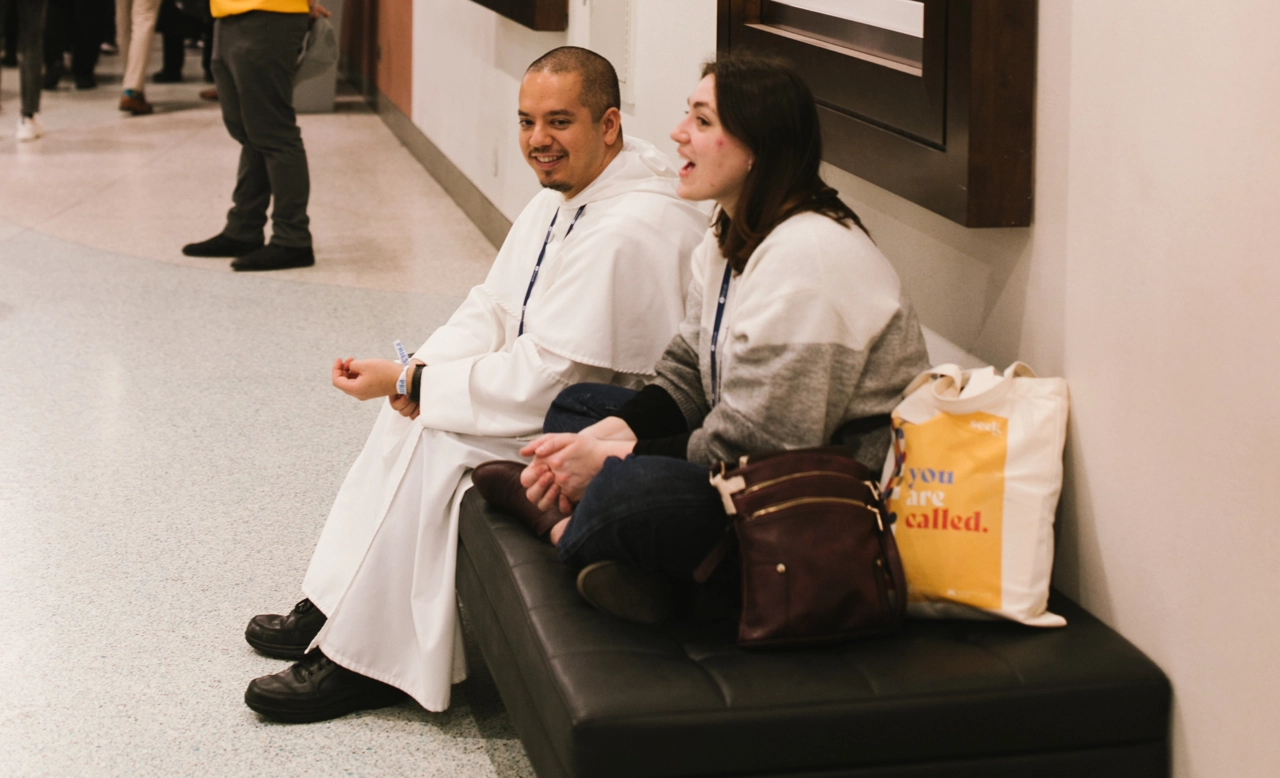
Our Vocation
On account of simply being human, we each have an ultimate eschatological vocation of union with God, the primary call of each person. Additionally, we each have a layer of our vocation related to our being created as either man or woman. Further, by the fact that we were intentionally created as distinct individuals, with particular gifts and sources of wonder, we are each called to a unique personal vocation. We have a particular way in which we can love God that is unlike anyone else. God calls each person to love him in a way no one else can. We have a responsibility to respond to this individual vocation that no one else can claim. He calls us, and he longs dearly for each individual response.
When I ask my students to reflect upon their vocations, some are first inclined to consider a type of vocation that appears to lie far in the distant future. They rest assured that they still have plenty of time to consider and discern this eventual, state-of-life vocation before it begins. Until then, the many aspects of college life absorb their attention.
While it may be true that we are all called to carefully discern how we will serve the Church in our vocations—whether that be in marriage, religious life, or the single life—this does not mean that one’s vocation is ever delayed. We must not wait on the sidelines, like passive bystanders, until our vocations finally arrive. Vocation is never something for which we should needlessly wait.
Rather, your vocation begins at the very moment your life does. It is something inherent in our personal existence. Our personal callings begin right away, and no one else, and nothing else, can respond to this call for us.
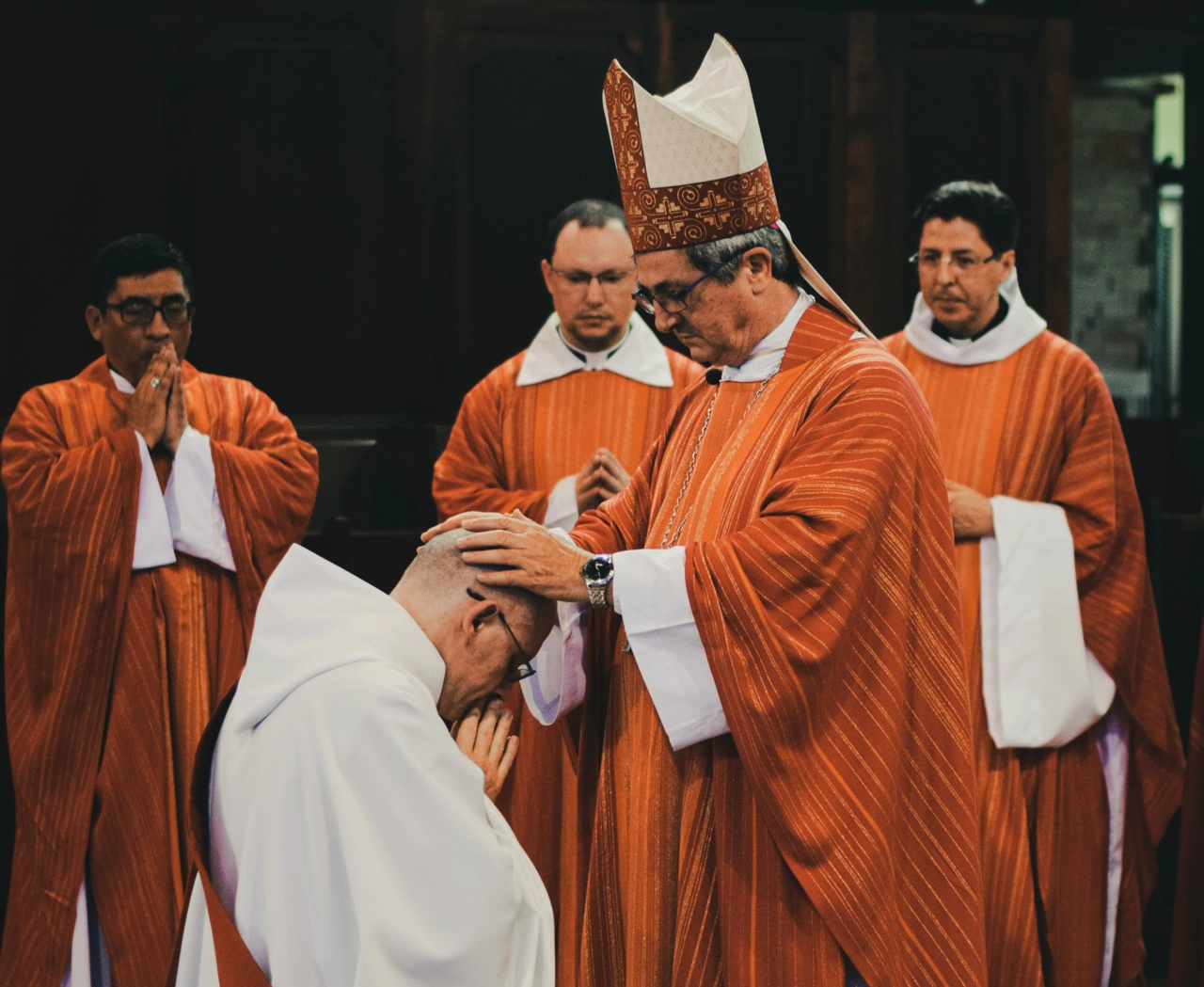
Artificial Intelligence Cannot Respond to a Vocation
We do not have to feel perfectly ready for our vocation, either. We are not robots designed to dependably carry out the tasks imposed. Once we enter our vocations, we do not instantly receive expert knowledge of its depth and scope. Rather our vocation becomes a classroom. Through our vocation, God will teach us how to love with his grace. Our vocations will offer us God’s lessons aimed at drawing his love out of each of us. In each integral layer of our vocation—eschatological, as a man or as a woman, and individual—we make gifts of ourselves and receive the gift of another.
In the recurring question of what makes one human, there hides the more subtle question: What makes me, me? We find the answer to both when we turn to loving the Eucharist. The ultimate gift reminds us that we, too, are gift.
Artificial intelligence may not be able to make this intentional gift of self. It does not have a personal existence that can be revealed or hidden. Even in this new chapter that reveals an evermore unpredictable technological landscape, we can seek to make the entirety of our lives a mission to lift up Christ in our own sacred flesh. An authentic gift of ourselves will always reveal itself to be a gift of Christ living within us.
